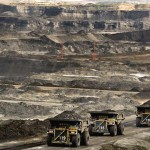Canadian Association of Petroleum Producers forecasts a $50 billion drop in spending
The dramatic fall in oil prices has been felt around the world, particularly in major oil producing countries like Canada, where the benchmark WCS crude oil sells at a significant discount to global benchmark Brent crude. Because producing from Canadian assets has become increasingly uneconomical, operators are cutting capital spending in the country by more than 50% in 2016 when compared to 2014 levels, according to a forecast from the Canadian Association of Petroleum Producers.
CAPP expects Canadian oil and gas spending to amount to $31 billion in 2016, down 62% from the $81 billion spent in the sector in 2014. It is the largest two-year drop since CAPP began tracking the data in 1947.
The sharp decline in spending as well as a 3,500 decline in wells forecasted for the year, has CAPP ringing alarm bells and calling for “urgent action” so that the industry remains competitive.
“Canada needs urgent action to remain an attractive market for oil and gas investment, and to be competitive relative to other oil and natural gas producing jurisdictions,” said Tim McMillan, CAPP president and chief executive officer, said in a press release.
More Canadian production would be economic with more pipelines
The delay and eventual cancelation of the TransCanada’s (ticker: TRP) Keystone XL pipeline has played a role in the current woes of the Alberta economy, Rob Mark, an energy analyst with 3Macs told CBC.
“Keystone XL was delayed by four years and eventually cancelled,” said Mark. “In between that time, you still had production moving forward, but instead of the oil moving on efficient pipelines to U.S. markets, it moved on railcars, which is much less efficient and costly. So when you have a pricing downturn, that production is less profitable.”
The pain of the 2014 downturn was unavoidable, but more of Canada’s production would be economic today if more efficient means of transportation existed, said Mark.
Models run by Bank of Canada forecast that it will take at least two years for the wider Canadian economy to recover from the crash in oil prices. During that time, the bank expects oil and gas exports to make up just 40% of total exports, down 10% from 2014.
Going “the way of the dinosaur”
Keith Stewart, climate and energy campaigner with Greenpeace Canada, said the country should take no action in propping up the industry.
“Canada needs to take action so that we win in the new world of low-carbon, renewable energy. Oil companies have a choice: transform themselves into clean energy providers or go the way of the dinosaur,” said Stewart.






